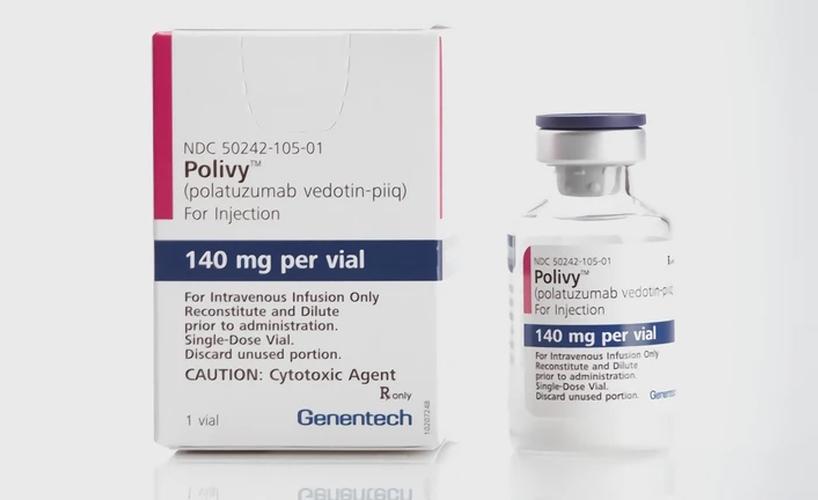Despite FDA doubts, advisors back first-line Polivy use

The FDA had reservations about the efficacy of Roche’s Polivy as a first-line regimen alongside chemotherapy for diffuse large B-cell lymphoma (DLBCL), but its advisors feel the data is strong enough to support approval.
The Oncologic Drugs Advisory Committee voted 11 to 2 yesterday that Polivy (polatuzumab vedotin) and the R-CHP chemo regimen offered a clinically meaningful improvement over the comparator R-CHOP regimen in the POLARIX study and should be approved.
That is in contrast with the position of the FDA reviewers, who indicated in a briefing document published ahead of the meeting that substituting Polivy for one of the chemo components (Oncovin, or vincristine) only showed a “modest benefit” in progression-free survival (PFS).
In POLARIX, Polivy achieved a 27% reduction in PFS and, according to Roche, is the first drug into 30 years to show a benefit over standard front-line care in DLBCL.
Around 40% of people with DLBCL relapse after initial therapy, so boosting responses in the front-line setting has the potential to provide big benefits to patients and reduce the need for later line therapies. In POLARIX, over follow-up of more than two years Polivy reduced the need for subsequent therapies by a third.
The drugmaker was quick to point out that the ODAC’s recommendations are not binding, but the agency generally follows its experts’ advice and is due to deliver a final verdict on the marketing application by 2nd April.
In favour of a positive outcome is that Polivy is already approved alongside R-CHP for previously-untreated DLBCL in more than 60 countries, including member states of the EU, where it got a green light for this use in May last year.
Polivy has been cleared by the FDA since 2019 as a third-line treatment for DLBCL alongside rituximab and bendamustine, but moving it into first-line use elsewhere has already sparked an acceleration in sales, rising 85% to reach CHF 437 million (around $470 million) last year.
Roche has previously said that approval of the ADC for newly-diagnosed patients could unlock a worldwide market worth around $2 billion a year, transforming the commercial potential of the drug, with a big chunk of that total expected to come from the US market.
Polivy is one of a clutch of new therapies that Roche is hoping will grow quickly to offset the hit to its revenues caused by the launch of low-cost biosimilar competition to its Rituxan/MabThera brand of rituximab and its stablemate cancer antibodies Avastin (bevacizumab) and Herceptin (trastuzumab).


